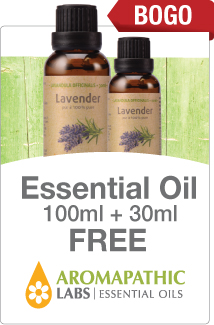- 150 mg
- Bacopa 35:1 extract (Bacopa monnieri herb top; 55% bacosides)
- PhytoCann® Complex
- 25 mg
- Ginger 12:1 extract (Zingiber officinale rhizome)
- 20 mg
- White Peony 25:1 extract (Paeonia lactiflora root)
- 12.5 mg
- Clove 10:1 extract (Syzygium aromaticum flower bud)
- 12.5 mg
- Bunge Prickly Ash 10:1 extract (Zanthoxylum bungeanum fruit pericarp)
- 10 mg
- Echinacea 18:1 extract (Echinacea angustifolia root)
- 6.25 mg
- Magnolia bark 20:1 extract (Magnolia officinalis bark)
Softgel (food starch-modified, carrageenan, sorbitol, glycerin, purified water, riboflavin and sodium copper chlorophyllin as colours), organic olive oil, coconut oil, candelilla wax, sunflower lecithin
Format
 Softgels
Softgels
60 Softgels
Dosage
Adults: Take 2 softgels daily.
Important Information
Vegan. Gluten and Soy free. Consult a health care practitioner prior to use if you are pregnant or breastfeeding. May cause digestive problems. Keep out of reach of children.
- Helps support cognitive health, brain function and memory
- Source of antioxidants that help protect brain cells against the oxidative damage caused by free radicals
- Homeostasis (biological balance of body and mind)
- Naturally supports mental acuity
- Vegan. Gluten and Soy Free
Related Videos
Articles by a naturopathic doctor.
Emerald Health provides natural health supplements that have been formulated to target the endocannabinoid system. Using nature's purest and most potent elements, Emerald Health creates proprietary formulas that have been driven by science and spirit to provide those of all ages with innovative wellness solutions to keep the mind and body in perfect balance.
Brain Health & Concentration
Easy Ways to Boost Your Brain Health and Concentration... Naturally!
The brain is a complex organ. Very generally speaking, the brain receives sensory information from the body, analyzes the 'data' and then responds accordingly, whether it be a motor response, or autonomic function, such as breathing or controlling heart rate. The brain does it all – and without it, we simply do not function. So how do we keep this vital organ in tip top shape? In order for the brain to function optimally, at any age, it requires healthy nerve cells, and an adequate supply of blood, nutrients and neurotransmitters. Read on to find out how we can best supply this vital organ with all it needs.
Brain Basics
The human brain consists of a number of different sections which are all responsible for a slightly different functions. The brain stem, which attaches the brain to the spinal cord, is responsible for some reflexes and autonomic functions, such as breathing, heart rate, and blood pressure. The cerebellum, located posterior and inferior, is responsible for position and movement. The hypothalamic and pituitary area, the innermost portion of the brain, is responsible for visceral functions, such as regulating body temperature, sexual response, aggression and pleasure, feeding and drinking. The cerebral cortex is the hub of the brain, the main processing station. Here, almost all the information entering the brain from sensory organs is integrated and processed. Motor function is initiated, emotion and thought processes are controlled and memory is stored. The cortex has the ability to sort out the information it receives and send it out to the specific lobe responsible for the task. The frontal lobe, for instance is in charge of motor skills, including speech, as well as overseeing executive functions/higher order functions, such as self control, planning, reasoning and abstract thought. The occipital lobe processes visual information, while the temporal lobe's main function is to process auditory information. The parietal lobes process touch, pain and temperature (somatosensory information). Wernicke's area is also found here, responsible for the understanding of written and spoken language.
How Your Brain Communicates With You and Your Body
The brain, including all of these lobes, make up one portion of the Central Nervous System (CNS). The spinal cord and peripheral nerves, along with the brain are the key components of this system. The brain is made up of a vast number of nerve cells (neurons), through which electrochemical signals are transmitted. This is how messages are sent within the central nervous system. These messages can travel long distances jumping from one nerve cell to another (across synapses), or a short distance down one single neuron. Not all signals or messages need to travel to the brain in order for a response to be generated. Many reflexes, for example, are messages that enter the spinal cord through a sensory neuron, meet with a motor neuron, which then sends a message to the appropriate muscle (usually to contract.). More complex processes require information to be sent to the brain's cerebral cortex where it is processed and sent on. These signals travel extremely quickly and rely on a healthy environment to function optimally.
Brain Health For Everyone
Even young, healthy individuals can suffer from 'brain fog', or the odd memory lapse and even the happiest of people can have a 'slump', suffering from fluctuations in mood or bouts of depression. Alzheimer's and dementia, among other often debilitating diseases involving brain function, are certainly a cause for concern but we don't have to be suffering from one of these diseases in order to take precautions. There are things we can do now, at any age, to protect our healthy brains from deterioration and provide them with the nourishment and support they deserve. There are a number of different supplements, as well as lifestyle and dietary tips that can support sustained and healthy brain function.
Amino Acids, The Building Blocks of Neurotransmitters
Amino Acids found in protein are integral to the efficient and optimal functioning of the body. The brain requires these amino acids for optimal functioning, as well. Phenylalanine is an essential amino acid, meaning it must be taken in through diet. It can be found in a variety of meat, fish, seafood, seeds and lentils. One major function of phenylalanine is that is produces the non-essential amino acid Tyrosine. Tyrosine plays a role in a number of different brain related functions. Tyrosine is converted into the neurotransmitters epinephrine, norepinephrine and dopamine. These neurotransmitters support such processes as memory, attention and problem solving. They also help to combat depression, provide mood support and balance the overall stress response.
Glutamine is another amino acid with brain boosting abilities. Glutamine is the most abundant amino acid in the body, one of the reasons being that it acts as a secondary fuel source for the brain when glucose is not available, as such it provides energy to all the cells of the brain, making it vital to every function. Glutamine is considered both essential and non-essential, depending on the circumstances in the body. Seeing as it is so vital to the brain, as well as both immunological and gastrointestinal functioning, supplementing with glutamine, or at the very least making sure to consciously include it in the diet, is very important. Food sources of glutamine include animal protein, beets, cabbage, beans, raw spinach and parsley.
Just Like a Muscle: If You Don't use it, You'll Lose it.
Just as your body gets flabby and lazy without exercise, so does your brain. Both physical and mental exercise is extremely important to maintain healthy brain function. Physical exercise in the form of cardiovascular activity enhances blood flow to the brain, increasing the density and size of the brain capillaries. This increases oxygen to the brain and therefore optimizes delivery of nutrients and overall cognitive ability.
Crossword puzzles, games like Sodoku, card games, reading and learning new tasks, whether it be a new dance, a new song or a new language can all serve to increase brain function and enhance synapse activity within the brain. September means back to school for a lot of us, but it doesn't have to be a drag, just remember that with each new fact you learn or mathematical equation you solve, you are actually increasing brain power and protecting your brain from early decline. For those of us who have long finished school, remember that even old dogs can learn new tricks. Keep learning, it will keep your brain young and sharp.
Herbs That Promote Concentration
Various herbal supplements can be taken to improve cognitive function and even offer protection for the brain from degenerative effects. Bacopa is an herb that can enhance neurons and synaptic activity by repairing damage and improving nerve impulses. The bacosides in bacopa are responsible for these benefits thought to aid in prevention and even reversal of cognitive decline. Use bacopa to improve attention and memory. Ginkgo bilboa is used to increase blood flow to the brain which boosts memory and brings nutrients to the brain and nerve cells. As a strong antioxidant, Ginkgo can reduce cell damage from free radicals.
Brain Foods
A healthy diet is key to a healthy body, the brain being no exception. In fact the brain is one hungry organ, as long as it's the right fuel. Brain cells require 2x the amount of energy than that required by other cells in the body. When this energy requirement is not met, it leads to mental stress and exhaustion. The brain actually feeds on glucose, but don't reach for the candy bar just yet. Simple carbohydrates and refined sugar will fuel the brain, but it's very short lived and is followed by a low in which brain function is significantly less than optimal. Foods high in refined sugar lead to insulin release from the pancreas, which triggers cells to pull excess glucose out of the blood stream for storage. This means that ultimately, these foods cause glucose to be sucked out of the brain, resulting in less energy, meaning less focus and less than optimal function. The focus needs to be on complex carbohydrates like those found in fruit and vegetables and whole grains.
Many fruits and vegetables are also extremely high in antioxidants, helping to reduce the risk brain cell damage. Additionally, the importance of protein in the diet must not be underestimated. Protein is a long lasting and necessary energy source for the brain, supporting memory, attention and a number of other cognitive functions. Protein also contains a number of essential amino acids Eggs, one excellent source of protein, have been shown to boost brain power thanks to their lecithin and (therefore their) choline content. Lecithin, or c, also found in such things as oats, flax, wheat germ and fish, helps to speed up the sending of signals by/to nerve cells in the brain. Omega fatty acids, like those found in fatty fish like salmon and sardines, supports the building and maintenance of grey matter within the brain, as well as make up a large component of any cell membrane. In other words, Omega 3 fatty acids help to ensure the integrity of brain cells. Among their many other benefits, omega 3 fatty acids have shown positive effects on emotional balance, attitude and attention.
Healthy Mood, Healthy Brain
Bouts of depression, usually situational, are not uncommon for all of us. Overwhelming feelings of sadness, anger and anxiety are only exacerbated with stress and we could all use a little added support from time to time. Talking to a professional or a loved one can always help, as can some natural supplements. Fluctuations in mood can be neurotransmitter related. Deficient levels or inappropriate secretion of the neurotransmitter serotonin can have huge impacts on mood and mood stability. Deficiencies of a co enzyme called SAM-e have also been linked to depression, among other diseases. Supplementation may be important, as research has not shown that increasing methionine content in the diet (an amino acid that aids in the production of SAM-e) does not significantly improve SAM-e levels. 5HTP is a precursor to both serotonin and melatonin, both important to mood regulation. 5 HTP has been favourably compared to tricyclic antidepressants for the treatment of depression and balancing of serotonin levels. Deficiency in certain B vitamins can also impact brain function, including mood. B6 and B3, among others, have been researched for their mood stabilizing properties with positive results. Folic acid and B12 are essential for the production of SAM-e.
Sleep: A Vacation for your Brain
Sleep is not a dormant time for the brain, in fact the brain is quite active during sleep. Many believe that sleep is a time for over-worked neurons to repair. It is also said that it may allow the brain to exercise important neuronal connections that might otherwise deteriorate from a lack of activity while we are awake. Sleep deprivation can wreak havoc on our ability to focus, our memory, rational thinking and mood. This also strongly suggests that at least certain types of sleep help to maintain optimal emotional and social functioning. There is also some research to suggest that memory encoding happens during sleep.
The fall tends to be a time when we get back into the swing of a routine. The nights are cooler and sleep tends to come a little easier. That being said, sometimes getting back into a healthy sleep routine is not easy and sometimes added support is needed. Melatonin is a naturally produced hormone which is supposed to increase as night falls or it gets darker, making us feel sleepy. Melatonin, if taken about 30 minutes before bed, can help those individuals who often lie awake for hours before they are able to fall asleep. GABA is another amino acid and neurotransmitter shown to calm the nervous system, literally preventing brain cells from over firing. GABA is often recommended for those individuals who can fall asleep, but can seem to stay asleep throughout the night.
Stress Reduction
Very little explanation is necessary here. Our brain cannot work miracles. If you are in the middle of a million different tasks, with a million different things running through your mind, you are bound to forget something, lose focus and attention on any one task and have trouble thinking clearly. Stress, as always, plays a huge role in how well we are functioning, including cognitively. As important as it is to exercise your brain, be sure that you are also allowing yourself time to shut your brain off, as well. Meditation is one excellent way to do this. For some, an evening stroll or a hot bath can also do wonders to get out of your head, hit your internal reset button and allow yourself to focus again.
- Reviews
- POST A NEW REVIEW





















